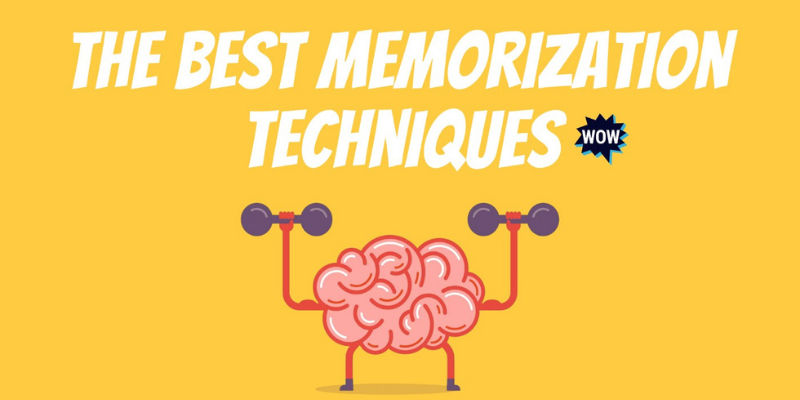What Are the Best Memorization Techniques
Have you been wondering, what are the best memorization techniques? This article will present you with some of the best ideas for memorization. Learning these techniques will help to boost your memory.

Memory problems, memory impairment, memory problems… you name it, and memorizing techniques might help you with it to some extent. Whatever you name it, we’ve all had memory lapses at some point in our lives. Memory loss can be caused by a number of factors.
The majority of them, though, are completely innocuous. We just cannot recall a person or an event as quickly as we once could. If you’ve noticed that your memory is failing you more than it should and you’re confident there aren’t any medical issues, know that there are things you can do to boost your memory. This post will assist you in locating some options for doing so.
Keep Things Interesting
If something doesn’t interest you, it’s unlikely that you’ll remember it. Simply simply, if you don’t pay attention to anything, you will most likely forget about it. After a few seconds of short term memory retention, you usually forget the notion. What do you do to begin with to strengthen your memory?
Pay close attention to anything and make sure you’re making the most of your memory. It may seem like the simplest thing in the world to remember something, but we frequently fail to do so.
Make the Most of Your Hearing
Many people find that listening to audio recordings rather than reading anything helps them recall and understand things better. This is a fantastic method to take, and learning things this way isn’t difficult because it’s a natural occurrence for many people in the first place.

Take some time and effort to retain all of the information you have in your memory. This is especially true when it comes to events, dates, meetings and other exact details. You can “label” items with brief, memorable phrases or terms that will remind you of the event so that you don’t have to look everything up on your to-do list.
Additional Memorization Methods
We seek out memorizing strategies in the hopes of improving our memory. This manner of thinking about it can be deceiving. Even though I express that sometimes in my writings, we can’t actually strengthen our memory. That’s exactly how we talk about things around here.
However, if you’re having difficulties remembering people’s names, there are certain things you can do to increase your capacity to recall everyone’s name. This, however, will not help you increase your overall memory. Do you see what I mean?
Let’s speak about various ways for memorizing items you need to remember instead than typical memorization approaches.
Do you ever fail to show up for meetings or neglect to wish someone a happy birthday? This has nothing to do with the fact that you have a terrible memory. It has everything to do with the fact that you don’t have a system in place to ‘remind’ you that these occurrences are approaching.
I’m bad at remembering events, for example. That is why I use a personal digital assistant (PDA). I can book an event at any time, and each Sunday, I can take a quick glance at what’s coming up in the coming days so I can be prepared for any activities that require it.
Remember Things You Have Done
Is it necessary for you to recall what you’ve done? Maybe you need to provide your boss an update on what you’re doing on a daily basis. Perhaps you’re a consultant or contractor who has to document your work while charging for hours.
The simplest way to achieve this is to keep track of everything you do in relation to a certain profession in a diary. It doesn’t take long to scribble down everything you’ve done and how much time you spend on each task in a given day.
Do you have to work on intricate projects where the fulfillment of some tasks is contingent on the completion of others? Are you a complete failure when it comes to these types of projects? If that’s the case, it’s not because you have a bad memory.
All you need to do is plan and execute tasks using a system. The most efficient way to complete projects is to use a list system with categories. For example, if establishing a relationship with a local institution is a part of your project, you can’t just put it on a list.
You’ll never do it because it’s too broad. That task is turned into a category, and all sub-tasks that lead to its completion are added to it. The first step would be to obtain the name of a university contact. This should be a separate item on the list. Then you must contact that individual. That’s another thing on the list, and so on.
Examine what you’ll need to complete on a given day on a regular basis. Make a mental note of everything you’ll need to do the next day. Keep a mental record of both small and large events. Don’t give up on small details; you’ll always be able to remember them if you simply concentrate and give it your all, which is the best memorization technique of all.



